The brachial plexus is the net of nerves that sends signals from the spine to the shoulder, arm or hand. Its injury mostly occurs when the nerves get stretched, compressed or in severe cases ripped apart or torn away from the spinal cord. Surgical procedures like nerve grafting, nerve transfer or muscle transfers can help in restoring the function.
Singapore is hospitable for all it international patients each year, visiting the country for a range of medical care including from screening to high-end surgical procedures. The healthcare centers in Singapore provides an affordable, accessible, quality healthcare. Most of the surgeons have done their fellowship from some of the top center’s globally and have gained recognition in their respective fields. Few of them are actively involved in the research, development, and education on their subject.
The cost of brachial plexus treatment in Singapore, the fineness of therapy, skilled doctors and aftercare provided are at par with few of the most popular medical tourism destinations like UAE, India, Turkey, Thailand, and Hungary. Brachial plexus treatment cost in Singapore including the hospitalization cost, implant cost, and doctors’ fees is almost half when compared with the treatment cost offered in US or UK.
| Country | Minimum Cost | Minimum Local Currency | Maximum Cost | Maximum Local Currency |
|---|---|---|---|---|
| India | USD 4500 | INR 374175 | USD 6500 | INR 540475 |
Treatment cost
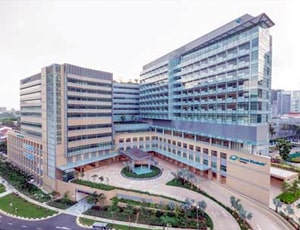
Mount Elizabeth Novena Hospital located in Novena, Singapore is accredited by JCI. Also listed below are some of the most prominent infrastructural details:
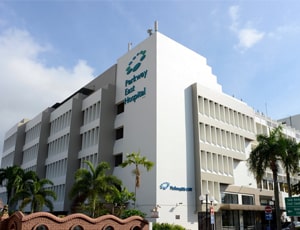
Parkway East Hospital located in Joo Chiat Pl, Singapore is accredited by JCI. Also listed below are some of the most prominent infrastructural details:
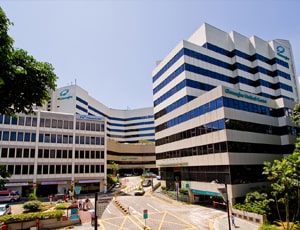
Gleneagles Hospital located in Napier Road, Singapore is accredited by JCI. Also listed below are some of the most prominent infrastructural details:

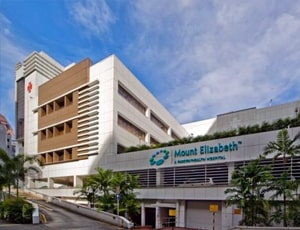
Mount Elizabeth Hospital located in Singapore, Singapore is accredited by JCI. Also listed below are some of the most prominent infrastructural details:
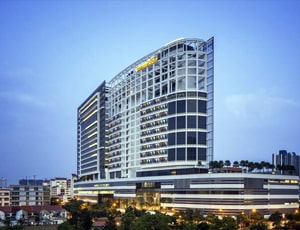
Apart from in-detail treatment procedures available, Farrer Park Hospital located in Connexion, Singapore has a wide variety of facilities available for International Patients. Some of the facilities which are provided by them are Accommodation, Airport Transfer, Choice of Meals, Interpreter, SIM, TV inside room. Also listed below are some of the most prominent infrastructural details:
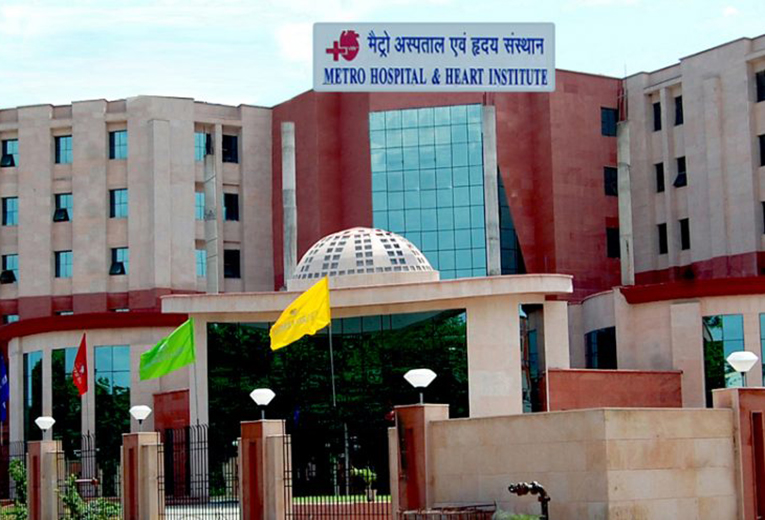
Types of Brachial Plexus Injuries/Stereotactic Procedures in Metro Hospital and its associated cost
| Treatment Option | Approximate Cost Range (USD) | Approximate Cost Range (INR) |
|---|---|---|
| Overall Brachial Plexus Surgery | 4601 - 7578 | 382040 - 608432 |
| Nerve Decompression Surgery | 2837 - 6169 | 230993 - 503085 |
| Nerve Grafting Surgery | 4748 - 7962 | 378429 - 658079 |
| Nerve Transfer Surgery | 6484 - 8455 | 535283 - 683660 |
| Free Muscle Transfer Surgery | 7568 - 9209 | 618409 - 771438 |
| Tendon Transfer Surgery | 4684 - 8062 | 387948 - 642821 |
| Nerve Repair Surgery | 2832 - 9264 | 230947 - 767702 |
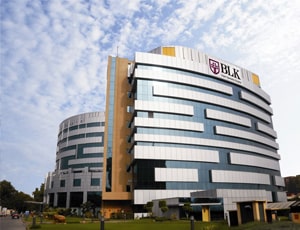
BLK-Max Super Speciality Hospital located in New Delhi, India is accredited by NABL. Also listed below are some of the most prominent infrastructural details:
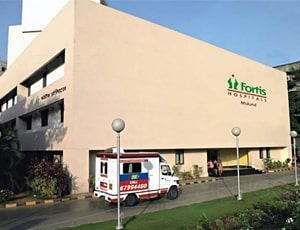
Types of Brachial Plexus Injuries/Stereotactic Procedures in Fortis Hospital, Mulund and its associated cost
| Treatment Option | Approximate Cost Range (USD) | Approximate Cost Range (INR) |
|---|---|---|
| Overall Brachial Plexus Surgery | 5721 - 8910 | 464003 - 722007 |
| Nerve Decompression Surgery | 3325 - 7351 | 275557 - 598503 |
| Nerve Grafting Surgery | 5626 - 9611 | 466010 - 804717 |
| Nerve Transfer Surgery | 7711 - 10166 | 636998 - 822184 |
| Free Muscle Transfer Surgery | 9001 - 11194 | 739585 - 930788 |
| Tendon Transfer Surgery | 5722 - 9566 | 455013 - 793047 |
| Nerve Repair Surgery | 3302 - 11425 | 279815 - 919105 |
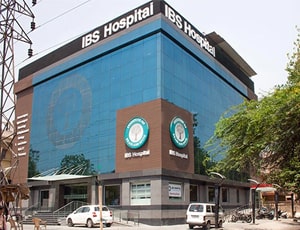
Types of Brachial Plexus Injuries/Stereotactic Procedures in IBS Hospital and its associated cost
| Treatment Option | Approximate Cost Range (USD) | Approximate Cost Range (INR) |
|---|---|---|
| Overall Brachial Plexus Surgery | 5086 - 8105 | 415209 - 667657 |
| Nerve Decompression Surgery | 3047 - 6606 | 250912 - 542535 |
| Nerve Grafting Surgery | 5096 - 8731 | 415054 - 718309 |
| Nerve Transfer Surgery | 7104 - 9095 | 580609 - 748131 |
| Free Muscle Transfer Surgery | 8122 - 10132 | 668764 - 829460 |
| Tendon Transfer Surgery | 5089 - 8658 | 415747 - 706007 |
| Nerve Repair Surgery | 3033 - 10161 | 250708 - 831694 |
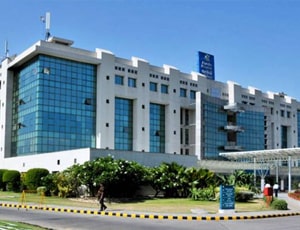
Types of Brachial Plexus Injuries/Stereotactic Procedures in Apollo Hospital International Limited and its associated cost
| Treatment Option | Approximate Cost Range (USD) | Approximate Cost Range (INR) |
|---|---|---|
| Overall Brachial Plexus Surgery | 5096 - 8081 | 417696 - 663166 |
| Nerve Decompression Surgery | 3043 - 6584 | 250629 - 539025 |
| Nerve Grafting Surgery | 5098 - 8713 | 414382 - 715492 |
| Nerve Transfer Surgery | 7094 - 9133 | 580939 - 746227 |
| Free Muscle Transfer Surgery | 8082 - 10167 | 665241 - 830961 |
| Tendon Transfer Surgery | 5084 - 8630 | 416568 - 704499 |
| Nerve Repair Surgery | 3052 - 10145 | 249972 - 836286 |
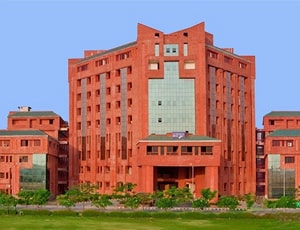
Types of Brachial Plexus Injuries/Stereotactic Procedures in Sharda Hospital and its associated cost
| Treatment Option | Approximate Cost Range (USD) | Approximate Cost Range (INR) |
|---|---|---|
| Overall Brachial Plexus Surgery | 4708 - 7410 | 383867 - 606008 |
| Nerve Decompression Surgery | 2828 - 6065 | 233128 - 500157 |
| Nerve Grafting Surgery | 4707 - 8134 | 389377 - 668292 |
| Nerve Transfer Surgery | 6626 - 8332 | 533537 - 683528 |
| Free Muscle Transfer Surgery | 7560 - 9471 | 607028 - 764877 |
| Tendon Transfer Surgery | 4675 - 8017 | 378504 - 642196 |
| Nerve Repair Surgery | 2797 - 9373 | 231094 - 768154 |

Dr. Rose Private Hospital located in Budapest, Hungary is accredited by JCI. Also listed below are some of the most prominent infrastructural details:
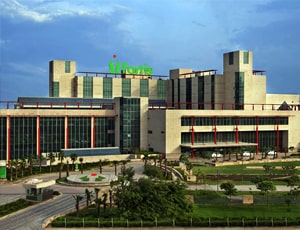
Fortis Memorial Research Institute located in Gurugram, India is accredited by JCI, NABH. Also listed below are some of the most prominent infrastructural details:
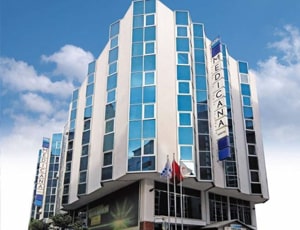
Types of Brachial Plexus Injuries/Stereotactic Procedures in Medicana Avcilar and its associated cost
| Treatment Option | Approximate Cost Range (USD) | Approximate Cost Range (TRY) |
|---|---|---|
| Overall Brachial Plexus Surgery | 8037 - 11274 | 240660 - 340428 |
| Nerve Decompression Surgery | 2214 - 5530 | 67440 - 170414 |
| Nerve Grafting Surgery | 3321 - 6729 | 99779 - 202634 |
| Nerve Transfer Surgery | 5676 - 8987 | 172168 - 272605 |
| Free Muscle Transfer Surgery | 7892 - 11106 | 237415 - 333528 |
| Tendon Transfer Surgery | 3448 - 8011 | 103510 - 232082 |
| Nerve Repair Surgery | 2253 - 5681 | 67680 - 173007 |
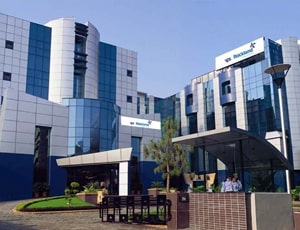
Types of Brachial Plexus Injuries/Stereotactic Procedures in Medeor Hospital and its associated cost
| Treatment Option | Approximate Cost Range (USD) | Approximate Cost Range (INR) |
|---|---|---|
| Overall Brachial Plexus Surgery | 5054 - 8128 | 416885 - 667467 |
| Nerve Decompression Surgery | 3042 - 6583 | 250621 - 541519 |
| Nerve Grafting Surgery | 5071 - 8750 | 415391 - 718020 |
| Nerve Transfer Surgery | 7114 - 9148 | 582683 - 752465 |
| Free Muscle Transfer Surgery | 8129 - 10197 | 663348 - 832378 |
| Tendon Transfer Surgery | 5073 - 8664 | 414299 - 705391 |
| Nerve Repair Surgery | 3042 - 10166 | 249337 - 829530 |
The brachial plexus is a network of nerves that extends from the spinal cord in the neck down the arm, controlling muscle movement in the wrist, hand, shoulder, and elbow. Brachial plexus injury is a medical emergency caused by trauma to the network of nerves called the brachial plexus, while some brachial plexus injuries are minor, others are more complex and require surgery for treatment. Damage to these nerves, also known as brachial plexopathy, can result in loss of function and sensation. Prompt medical intervention is crucial to evaluate the severity of the nerve damage and initiate appropriate treatment to facilitate recovery and prevent potential long-term complications.
Stereotactic surgery is a minimally invasive procedure that utilizes a three-dimensional coordination system to pinpoint targets within the body and perform actions such as injections, biopsies, ablations, and implantations. This precise surgical technique is essential for ensuring accurate diagnosis and effective treatment for patients. Stereotactic procedures can be performed on any organ in the body, allowing for targeted interventions and improved patient outcomes.
Stereotactic procedures can be classified into several categories based on their specific applications and techniques. Here are some common classifications:
Several common surgical treatments for brachial plexus injuries include:
Determining an exact recovery time after brachial plexus injury treatment is challenging due to the wide range of injury severities and types. The likelihood of spontaneous recovery varies based on the specific characteristics of the injury.
Following surgery, nerve tissue regenerates slowly, typically at a rate of about an inch per month. Consequently, it may take several years to fully evaluate the success of brachial plexus injury surgery. Throughout the recovery process, patients are advised to maintain joint flexibility through a prescribed exercise regimen.
Although the success rate of surgery is generally favorable, both the recovery period and success rate must be assessed on an individual basis, considering factors such as the extent of nerve damage and the patient's overall health.
Ask your healthcare adviser for the best multiple options and choose the one that meets your expectations
Different hospitals have different pricing policy when it comes to the cost of Brachial Plexus Injuries/Stereotactic Procedures in Singapore. The top hospitals for Brachial Plexus Injuries/Stereotactic Procedures in Singapore covers all the expenses related to the pre-surgery investigations of the candidate. Typically, the package cost of Brachial Plexus Injuries/Stereotactic Procedures in Singapore includes the expenses related to the surgeon's fee, anesthesia, hospital, meals, nursing and ICU stay. Post-surgical complications, new findings and delayed recovery may have an impact on the total Brachial Plexus Injuries/Stereotactic Procedures cost in Singapore.
Brachial Plexus Injuries/Stereotactic Procedures in Singapore is offered by multiple hospitals across the country. Some of the best hospitals for Brachial Plexus Injuries/Stereotactic Procedures in Singapore include the following:
The recovery of the patient many vary, depending on several factors. However, on an average, patient is supposed to stay for about 18 days in the country after discharge. This duration of stay is recommended to complete all the necessary follow-ups and control tests to ensure that the surgery was successful.
Apart from the Brachial Plexus Injuries/Stereotactic Procedures cost, the patient may have to pay for additional daily expenses such as for guest house after discharge and meals. These charges starts from USD 50 per person.
Some of the cpopular cities in Singapore that offer Brachial Plexus Injuries/Stereotactic Procedures include the following:
The patient has to spend about 3 days in the hospital after Brachial Plexus Injuries/Stereotactic Procedures for proper recovery and to get clearance for discharge. The patient is subjected to several biochemistry and radiological scans to see that everything is okay and the recovery is on track. After making sure that patient is clinically stable, discharge is planned.
The average rating for Brachial Plexus Injuries/Stereotactic Procedures hospitals in Singapore is 2.7. This rating is calculated on the basis of different parameters such as attitude of the nurses, cleanliness, quality of food and the pricing policy.
There are more than 5 hospitals that offer Brachial Plexus Injuries/Stereotactic Procedures in Singapore. The above listed clinics are approved to perform the surgery and have proper infrastructure to handle Brachial Plexus Injuries/Stereotactic Procedures patients. These hospitals comply with all the rules and regulations as dictated by the regulatory bodies and medical association in Singapore
Some of the top doctors for Brachial Plexus Injuries/Stereotactic Procedures in Singapore are: